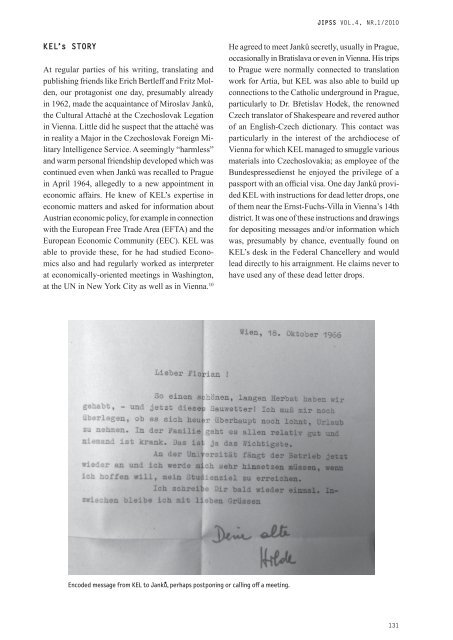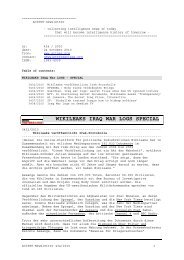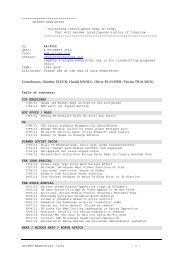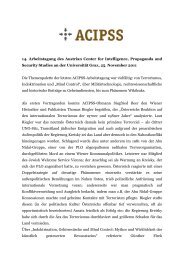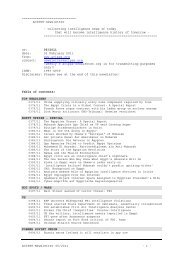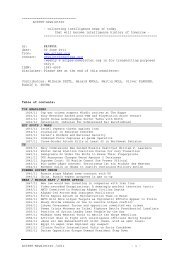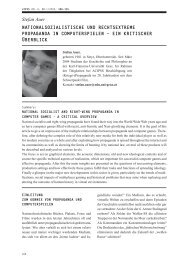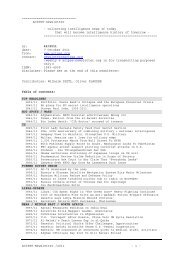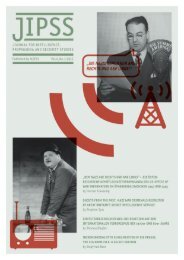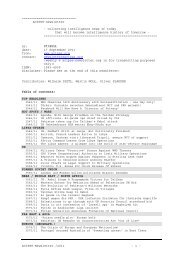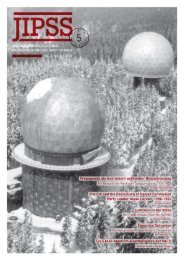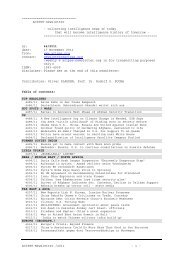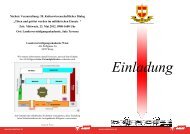Siegfried Beer THE “SPY” KARL ERWIN LICHTENECKER - acipss
Siegfried Beer THE “SPY” KARL ERWIN LICHTENECKER - acipss
Siegfried Beer THE “SPY” KARL ERWIN LICHTENECKER - acipss
Create successful ePaper yourself
Turn your PDF publications into a flip-book with our unique Google optimized e-Paper software.
KEL’s STORY<br />
At regular parties of his writing, translating and<br />
publishing friends like Erich Bertleff and Fritz Molden,<br />
our protagonist one day, presumably already<br />
in 1962, made the acquaintance of Miroslav Janků,<br />
the Cultural Attaché at the Czechoslovak Legation<br />
in Vienna. Little did he suspect that the attaché was<br />
in reality a Major in the Czechoslovak Foreign Military<br />
Intelligence Service. A seemingly “harmless”<br />
and warm personal friendship developed which was<br />
continued even when Janků was recalled to Prague<br />
in April 1964, allegedly to a new appointment in<br />
economic affairs. He knew of KEL’s expertise in<br />
economic matters and asked for information about<br />
Austrian economic policy, for example in connection<br />
with the European Free Trade Area (EFTA) and the<br />
European Economic Community (EEC). KEL was<br />
able to provide these, for he had studied Economics<br />
also and had regularly worked as interpreter<br />
at economically-oriented meetings in Washington,<br />
at the UN in New York City as well as in Vienna. 10<br />
Encoded message from KEL to Janku, perhaps postponing or calling off a meeting.<br />
JIPSS VOL.4, NR.1/2010<br />
He agreed to meet Janků secretly, usually in Prague,<br />
occasionally in Bratislava or even in Vienna. His trips<br />
to Prague were normally connected to translation<br />
work for Artia, but KEL was also able to build up<br />
connections to the Catholic underground in Prague,<br />
particularly to Dr. Břetislav Hodek, the renowned<br />
Czech translator of Shakespeare and revered author<br />
of an English-Czech dictionary. This contact was<br />
particularly in the interest of the archdiocese of<br />
Vienna for which KEL managed to smuggle various<br />
materials into Czechoslovakia; as employee of the<br />
Bundespressedienst he enjoyed the privilege of a<br />
passport with an official visa. One day Janků provided<br />
KEL with instructions for dead letter drops, one<br />
of them near the Ernst-Fuchs-Villa in Vienna’s 14th<br />
district. It was one of these instructions and drawings<br />
for depositing messages and/or information which<br />
was, presumably by chance, eventually found on<br />
KEL’s desk in the Federal Chancellery and would<br />
lead directly to his arraignment. He claims never to<br />
have used any of these dead letter drops.<br />
131


